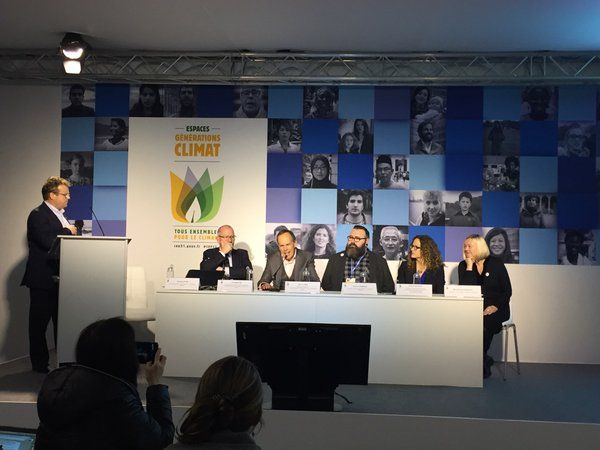
After many years of failed attempts, world leaders have finally signed a comprehensive deal to address climate change at COP21 in Paris. The agreement, signed by 195 nations, marks the first time that both developed and developing countries will be expected to help mitigate climate change by keeping global warming below 1.5 degrees Celsius. This is half a degree less than initially proposed, since it became clear early on in the negotiations that an increase of 2 degrees would result in disastrous consequences in certain hotspots. The new goal of limiting global average temperature rise to 1.5 degrees Celsius will instead facilitate an equitable, balanced ecosystem for all global citizens.
WUN joined this historic conference as an official observer organisation, sending a delegation of some of its leading minds in responding to climate change. The delegation included:
– Professor Debra Davidson, The University of Alberta
– Professor Tim Benton, The University of Leeds
– Professor Mark Eisler, The University of Bristol
– Professor Nikolaus Kuhn, The University of Basel
WUN co-hosted a side event with the University of Sheffield’s Grantham Centre on 2 December. The meeting, titled ‘What are the research challenges associated with developing a climate-smart agri-food system?’, brought together scientists and social scientists to consider the need for more resilient food systems as a result of climate change. It was chaired by Grantham Centre Director, Professor Tony Ryan OBE, and was joined by WUN experts.
In the side event, UK Champion for Global Food Security, Professor Tim Benton, argued that the solution to carbon lies not only in climate-smart agriculture, but also in demand mitigation. Professor Benton was joined by Professor Steve Long FRS of the University of Illinois, Professor Duncan Cameron of the University of Sheffield, Professor Debra Davidson of the University of Alberta, and Professor Michelle Holdsworth of the University of Sheffield.
The discussion also addressed water consumption in meat production, genetically modified crops, the direct impact of climate change on farmers, issues around how food is produced and distributed, and strategies for changing consumer behaviour, such as food labelling and improved supermarket layouts. The key takeaways from the event were as follows:
- The agri-food system causes 30% of all GHG emissions and is sensitive to climate change.
- Food production will be more variable because of increased frequency of extreme weather, threatening increased undernutrition and political instability.
- Without more production per hectare, cultivation will move into non-crop land, increasing GHG emissions. This could be avoided if we were willing to invest in and adopt new technology.
- New technology also needed to reduce fertiliser use and preserve soils.
- Social science reveals the importance of innovation within small farming communities and the role of women in bringing about change.
- Adoption and maintenance of traditional plant-based diet is essential to reduce GHG emissions from agriculture and increase global health.
Earlier that day the Grantham Centre launched its first briefing note, led by Professor Duncan Cameron, on the unfolding global crisis of soil loss and its catastrophic impact on food security, which fed into much of the afternoon’s discussion. Following the event, Professor Michelle Holdsworth published a commentary piece on how unhealthy diets contribute to climate change and hunger. Professor Peter Horton, Associate Director of the Grantham Centre, also published a piece the following day on the key issues around adapting the food system to climate change.
Prior to the event, Professor Debra Davidson said that it would be an invaluable opportunity to present compelling new ideas that could influence those responsible for driving change. In her presentation, she argued that more social science research should be included in the climate discussion, especially that which focuses on retailers, policy-makers and consumers.
“They will be making new policies within months of the meeting,” she said. “This is one of the peak periods of potential influence.”
WUN will continue to work with international agencies and organisations to deliver research-driven outcomes at the global, regional and local level. Visit our Responding to Climate Change page for more information on current projects in this research area.